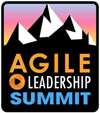Agile Leadership Summit
Agile Leadership Summit—Leading Agile Culture Change
Thursday, November 13 • 5:30pm–7:30pm and Friday, November 14 • 8:30am–3:30pm
(Additional registration is required to attend)
|
|
“We can’t do agile until the culture changes” is an often-heard lament from teams that want to adopt agile methods. The culture must move from plan- and schedule-driven—and this transition is not easy. In the Agile Leadership Summit, leaders who have achieved—or are in the process of achieving—this culture change share their challenges, successes, and struggles. |
|||||||||||||||||||||||||||||||||||||||||||||||||||||||||||||||||||||||||||||||||||||||||||||||||||||||||||||||||||||||||||||||||||||||||||||||||||||||||||||||||||||||||||||||||||||||||||||||||||||||||||||||||||||||||||||||||||
|
The Agile Leadership Summit is a perfect opportunity for you to:
|
||||||||||||||||||||||||||||||||||||||||||||||||||||||||||||||||||||||||||||||||||||||||||||||||||||||||||||||||||||||||||||||||||||||||||||||||||||||||||||||||||||||||||||||||||||||||||||||||||||||||||||||||||||||||||||||||||||
|
||||||||||||||||||||||||||||||||||||||||||||||||||||||||||||||||||||||||||||||||||||||||||||||||||||||||||||||||||||||||||||||||||||||||||||||||||||||||||||||||||||||||||||||||||||||||||||||||||||||||||||||||||||||||||||||||||||


 Pollyanna Pixton,
Pollyanna Pixton,





